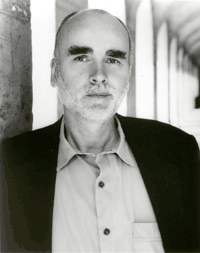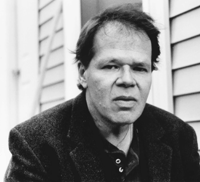 Franz Wright's poetry is often dark, spare and preoccupied with abuse and alcohol addiction. "Never has any poet, anywhere, been so dark-minded and at the same time so almost playful, so childlike about it all," said Pulitzer Prize-winning poet Donald Justice. The son of prominent American poet James Wright, Franz Wright began composing poems in his early teens. His father responded to his first poems with a letter that began, "I'll be damned. You're a poet. Welcome to hell."
Wright's latest collection, The Beforelife (2001), has been described by The Library Journals as Intriguing and always accessible. . .this book will expand the audience for poetry by showing readers that, in spite of stunning obstacles, it is always possible to live." In The Before, Wright journeys from the world that lies between madness and sanity, addiction and recovery, from a place of isolation and wordlessness to health in a state of skeptical rapture. Kirkus Reviews notes that "In these short meditations of anguish and hope, Wright achieves the clarity of seeing hard won wisdom." The Beforelife won the PEN/Voelcker Award for Poetry.
Wright has published more than a dozen books, including Ill Lit: Selected and New Poems (1998), The Night World and the Word Night (1992), And Still the Hand Will Sleep in Its Glass Ship (1990), and Entry in an Unknown Hand (1989). Wright has also published four books in translation of poetry by Rainer Marie Rilke, Erica Pedretti and Rene Char. His most recent is The Unknown Rilke: Expanded Edition (1991). |






